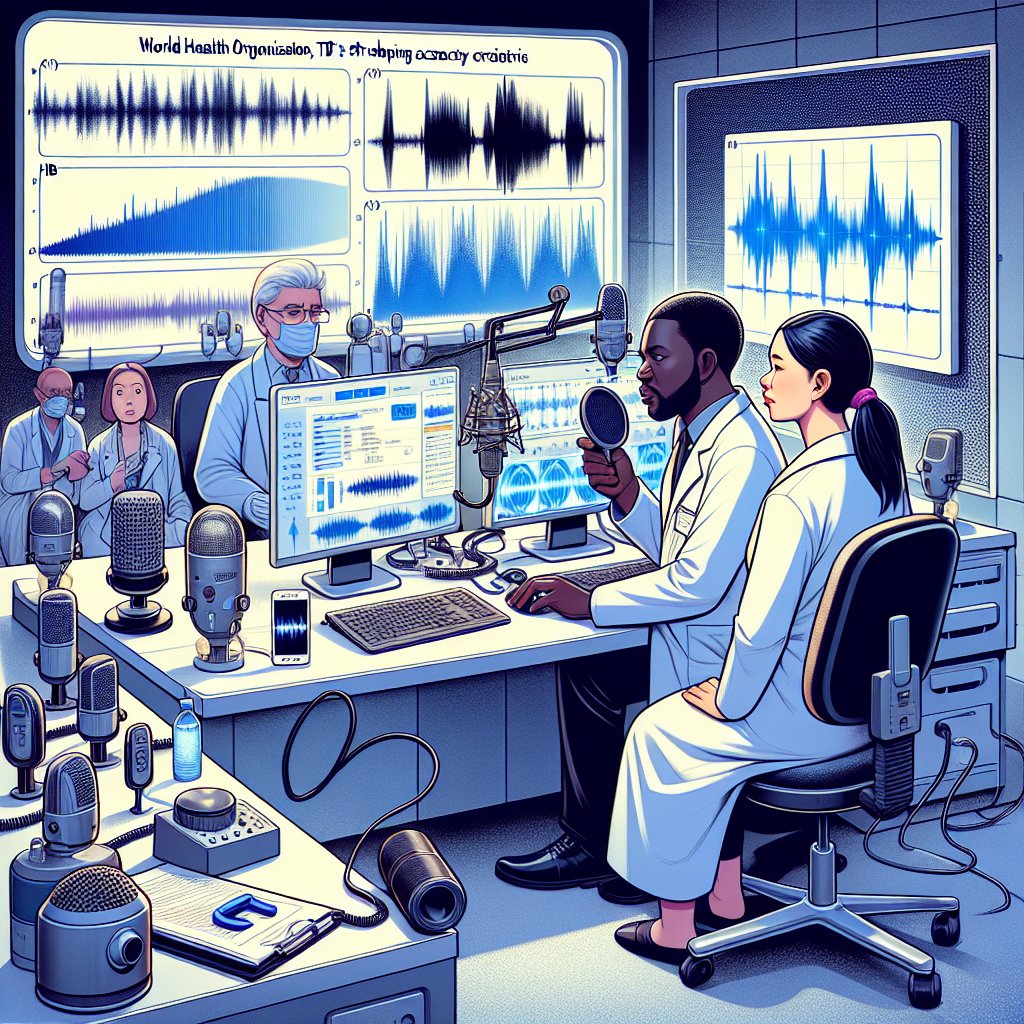Image created by AI
Kenyan Pioneers: AI-Driven TB Diagnosis App in Testing Phase
Kenya Medical Research Institute (KEMRI) is on the cusp of a medical breakthrough with the ongoing development of an artificial intelligence (AI) mobile application tailored to diagnose tuberculosis (TB) and other respiratory diseases. Spearheaded by Dr. Videlis Nduba, this innovative research could reshape TB detection and treatment, particularly in regions with limited medical infrastructure.
The heart of this research lies within a soundproof room where Dr. Nduba’s team captures coughs from individuals, both infected and healthy, using an array of microphones—from cost-effective models to high-definition ones, including a smartphone mic. These recordings then form a dataset that is processed by the University of Washington's ResNet 18 computer software system.
ResNet 18 utilizes artificial intelligence to analyze 'cough spectral grams,' essentially audio representations of coughs, to distinguish TB-linked cough patterns from non-TB coughs. The software's ability to rapidly diagnose TB from these cough recordings could significantly accelerate treatment initiation.
Currently, the period from symptom onset to confirmed TB diagnosis can be distressingly long—ranging from a few months to a year. Dr. Nduba stresses the importance of rapid diagnosis: "The less time before a patient can get a diagnosis and treatment, the better we can control the spread of TB," he notes. If someone could simply cough into a phone and be screened for TB, the potential for community transmission would drastically decrease.
However, the Kenyan teams face a major checkpoint: the World Health Organization's (WHO) stringent accuracy criteria. The WHO mandates that a diagnostic tool must achieve at least 90% precision for recognizing a TB infection and 80% for ruling it out when absent. Up to now, the app has attained 80% accuracy in confirming TB and 70% in dismissing its presence, tantalizingly close to the standards for approval.
The project has not only gathered scientific interest but also personal narratives, highlighting its real-world impact. Johnson Munori, a former TB patient now in remission, represents the human side of this technological advance. Having participated in the pilot study, Munori is a champion for the app, acknowledging its potential to aid countless individuals who, like him, may be unknowingly carrying the disease.
Expanding the scope, Jarim Omogi from Amref International University remarks on the broader application of AI in health care. Omogi sees technology like this TB screening app as an amplification of medical capability, aiding in timely, cost-effective patient care and, crucially, in substantiating clinical decisions and treatments.
While the trial has gained traction and secured funding from the National Institutes of Health, regulatory endorsement remains pending. Researchers are continuing to refine the software, aiming to meet the WHO accuracy benchmarks and unlock a new era of TB control and care.
This Kenyan-initiated project spearheads data-driven healthcare solutions, signaling a transformative approach to disease management and prevention, potentially saving millions of lives globally.










